
Most dangerous countries for Americans to travel to
Most dangerous countries for Americans to travel to
Traveling the world can be an excellent opportunity to learn about new cultures and to otherwise expand your perspectives. However, not every destination is safe to visit. Civil strife, government corruption, rampant crime, and environmental pollution can all create a situation where it is unadvisable to travel to certain places. The U.S. Department of State has issued travel advisories to several locations, including Venezuela, Uruguay, Libya, Syria, Somalia, Yemen, North Korea, and several Mexican states. While many of the nations on this list are at war, others—like China—are considered dangerous for political or ideological reasons.
Conversely, several nations have advised its citizens about travel to the United States. Ranked 49th on a list of safest nations by SafeAround, travel to the U.S. is advised against due to the proliferation of mass shootings and other domestic terrorism incidents, high levels of violent crimes in cities like Chicago and Detroit, an unchecked homelessness problem, the potential for civil unrest, and the proliferation of gun ownership. Venezuela and Uruguay have both issued travel advisories against the U.S., with China, Germany, Ireland, Japan, New Zealand, Uruguay, and Venezuela all issuing travel warnings to nationals traveling to the U.S.
To better understand the risks in traveling abroad, Stacker has consulted the U.S. Department of State's Bureau of Consular Affairs to determine the most unsafe nations for Americans to travel to. For this list, we will look at travel advisories issued by the State Department against the various nations. This list will not consider any political implications of said advisories, such as the president's threat to meet travel advisories against the U.S. with retaliation.
While there are resources available to Americans who find themselves in trouble abroad, the effectiveness of these rescue efforts may vary. It is advised that tourists leaving the United States know what the entry and exit requirements are for any country they visit, carry proper identification at all time, and have a plan in place in case of emergencies. More information on this can be found on the State Department's travel page.
Keep reading to learn if your next travel destination is on the list.
You may also like: Reasons behind State Department travel warnings for 25 countries
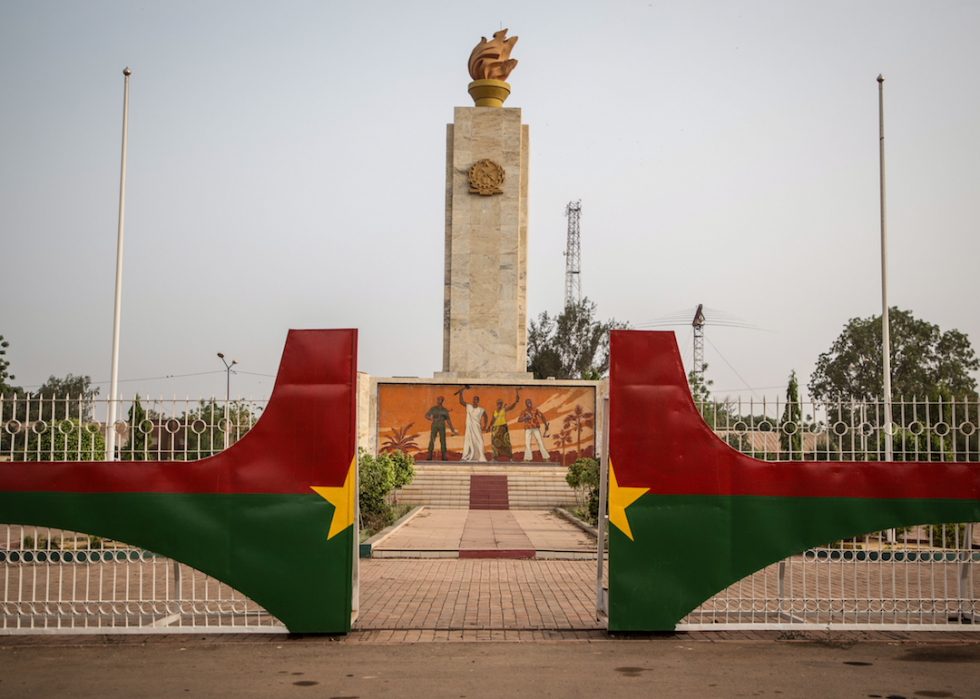
Burkina Faso
- Advisory: Level 3: Reconsider Travel
- Date advisory updated: 6/3/2019
- Estimated homicide rate per 100,000 people: 9.8
A highly food-insecure and impoverished nation in West Africa, Burkina Faso has been racked by political instability. Conditions have been inducive to incidents of terrorism, including a 2016 attack at a luxury hotel by an al Qaida-affiliated group that left 29 dead and more than 50 injured. The State Department recommends citizens avoid all travel to the northern Sahel border region because of crime and terrorism.
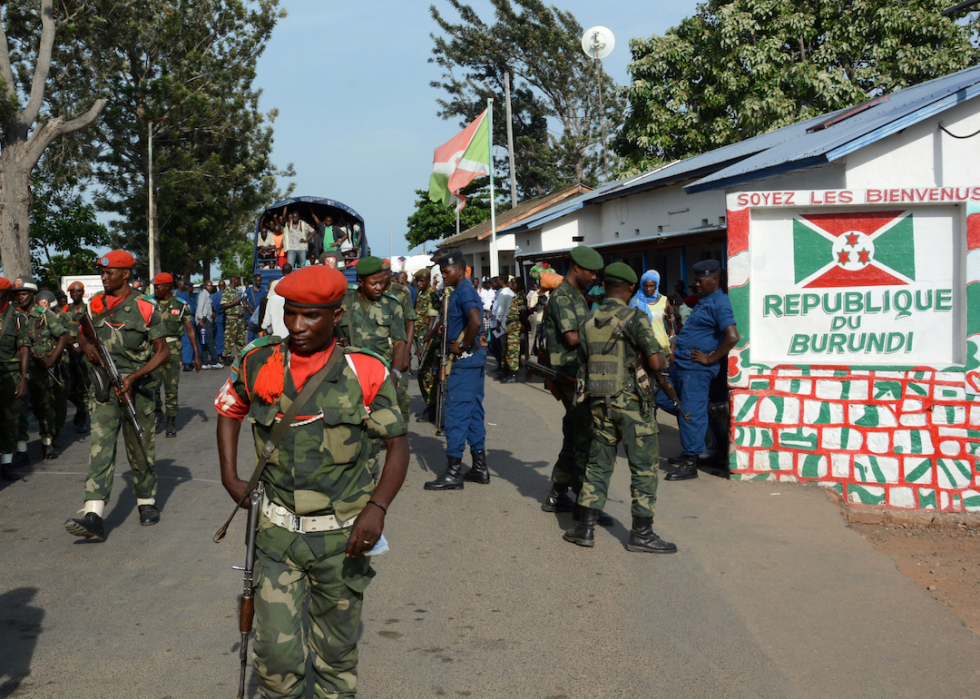
Burundi
- Advisory: Level 3: Reconsider Travel
- Date advisory updated: 6/12/2019
- Estimated homicide rate per 100,000 people: 6.6
Corruption, poor infrastructure, deforestation, overpopulation, and severe poverty have made the small Central African nation of Burundi a dangerous country. In 2018, Burundi was determined to be the least happiest nation on the planet by the United Nations; though it did move up 11 spots in the "2019 World Happiness Report." Violent crimes in Burundi—including grenade attacks and armed robberies—are common, and local police do not have the resources to respond adequately. There are also continuous political tensions in the country, and some areas are vulnerable to raids and mortar fire from the Democratic Republic of Congo.
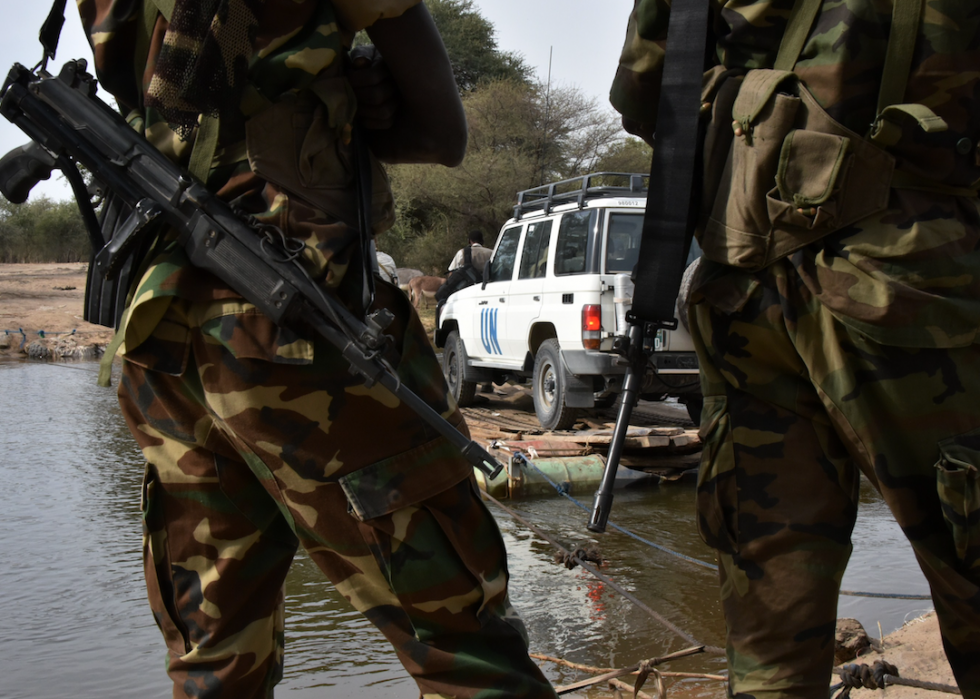
Chad
- Advisory: Level 3: Reconsider Travel
- Date advisory updated: 1/30/2019
- Estimated homicide rate per 100,000 people: 9.6
The Central African nation of Chad is in the midst of a humanitarian crisis, triggered by an onslaught of displaced persons coming in from Sudan, the Central African Republic, and from within Chad. This was triggered by famine and both internal strife and cross-border fighting. Minefields along Chad’s border with Libya and Sudan present a dangerous situation for U.S. travelers. Violent crimes in the country are common, and terrorists can easily cross the borders in the Lake Chad region, according to the State Department.
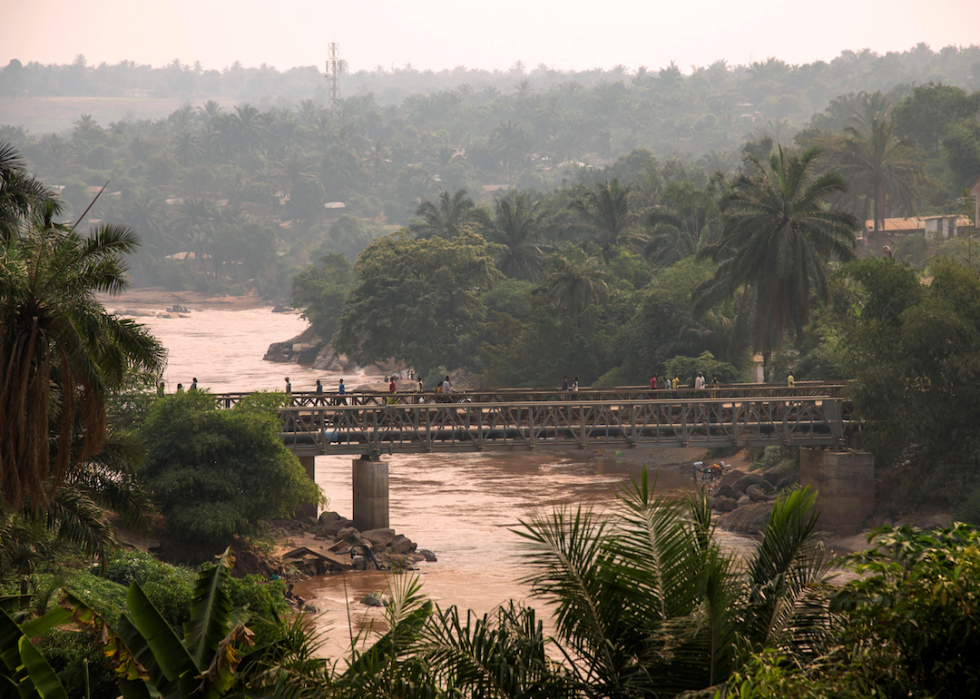
Democratic Republic of the Congo
- Advisory: Level 3: Reconsider Travel
- Date advisory updated: 4/9/2019
- Estimated homicide rate per 100,000 people: 13.3
U.S. citizens should rethink travel to the Central African nation of the Democratic Republic of the Congo due to civil unrest and crime. Travel to the eastern part of the country or the three Kasai provinces is strongly not advised due to armed conflict. Perpetrators of violent crime may pose as government officials or security agents, per the State Department.
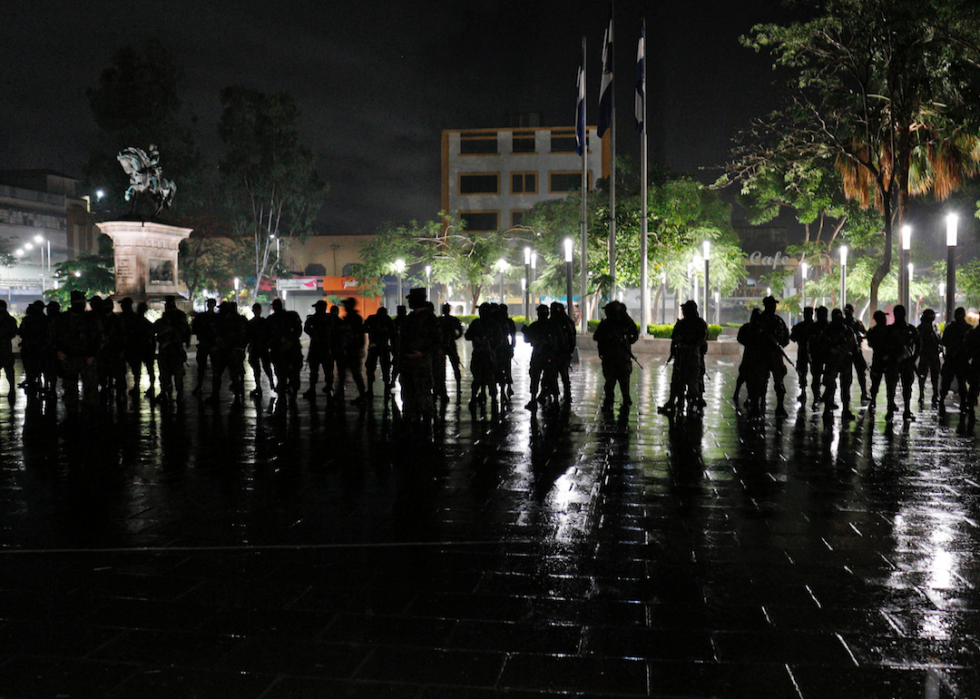
El Salvador
- Advisory: Level 3: Reconsider Travel
- Date advisory updated: 1/29/2019
- Estimated homicide rate per 100,000 people: 46
In the Central American nation of El Salvador, widespread gang activity raises activities such as extortion, violent street crime, and arms trafficking. If U.S. citizens decide to travel to the country, they should seek local guides when hiking in backcountry areas and avoid walking or driving at night.
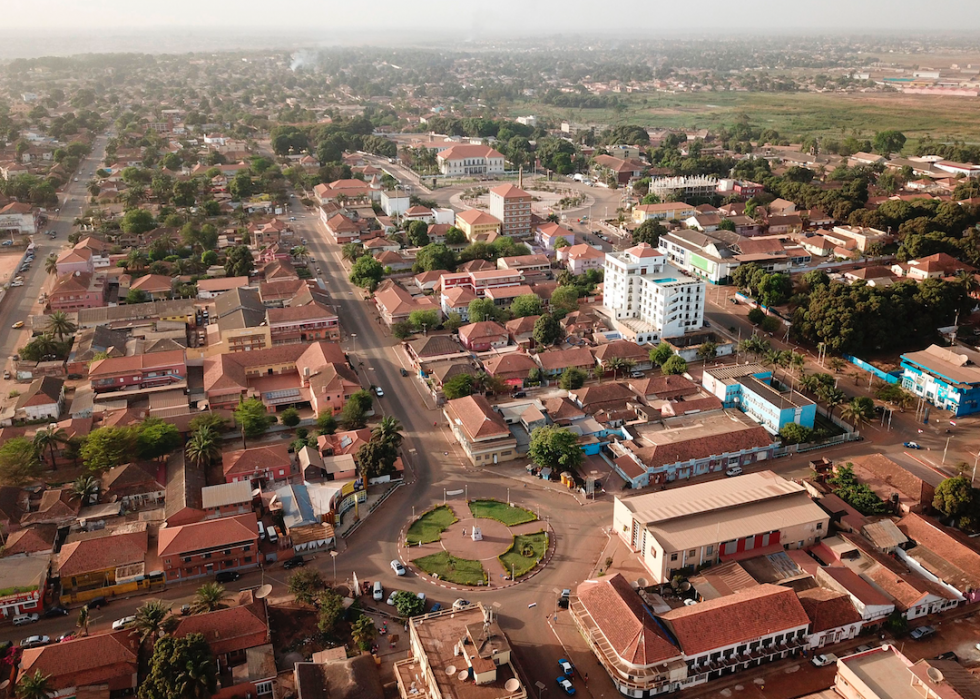
Guinea-Bissau
- Advisory: Level 3: Reconsider Travel
- Date advisory updated: 4/25/2019
- Estimated homicide rate per 100,000 people: 9.2
Travelers to the western Africa nation of Guinea-Bissau are frequently targeted for theft and minor assaults, and an uptick in narcotics trafficking has led to an increase in crime in the rural parts of the country. Additionally, police and emergency officials lack sufficient resources to respond to crime and violence.
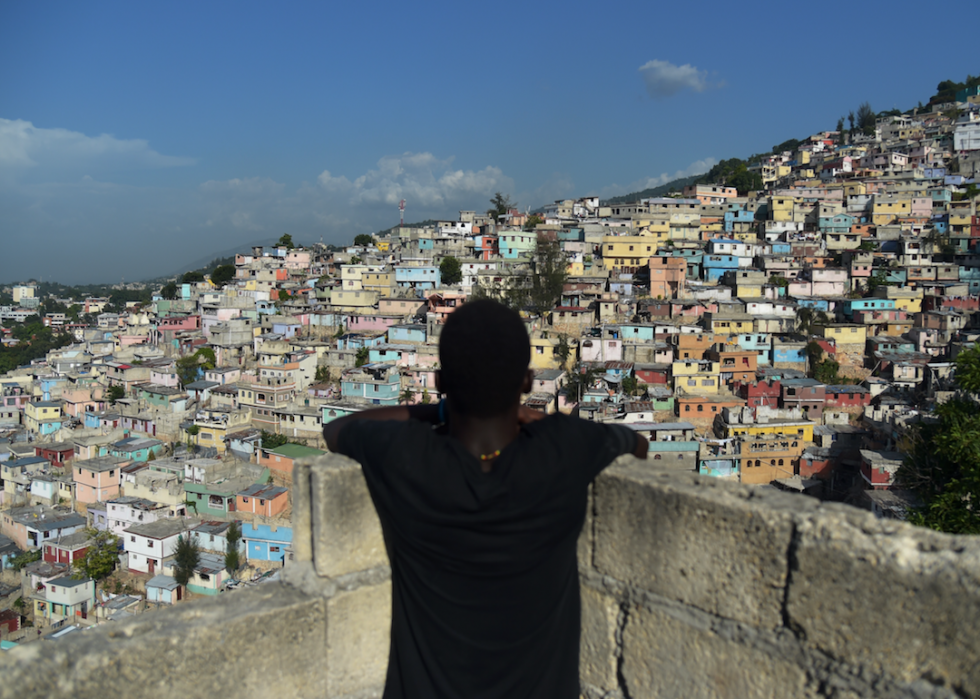
Haiti
- Advisory: Level 3: Reconsider Travel
- Date advisory updated: 6/11/2019
- Estimated homicide rate per 100,000 people: 28
On July 9, 2018, the U.S. government authorized non-emergency government employees and their families to voluntary depart from Haiti due to widespread crime and civil unrest. This was triggered by widespread destruction due to various hurricane strikes to the Caribbean nation, political corruption, and internal strife. Protests, tire burnings, and road blockages have become frequent, and as a result, the U.S. has limited services to respond to emergencies.
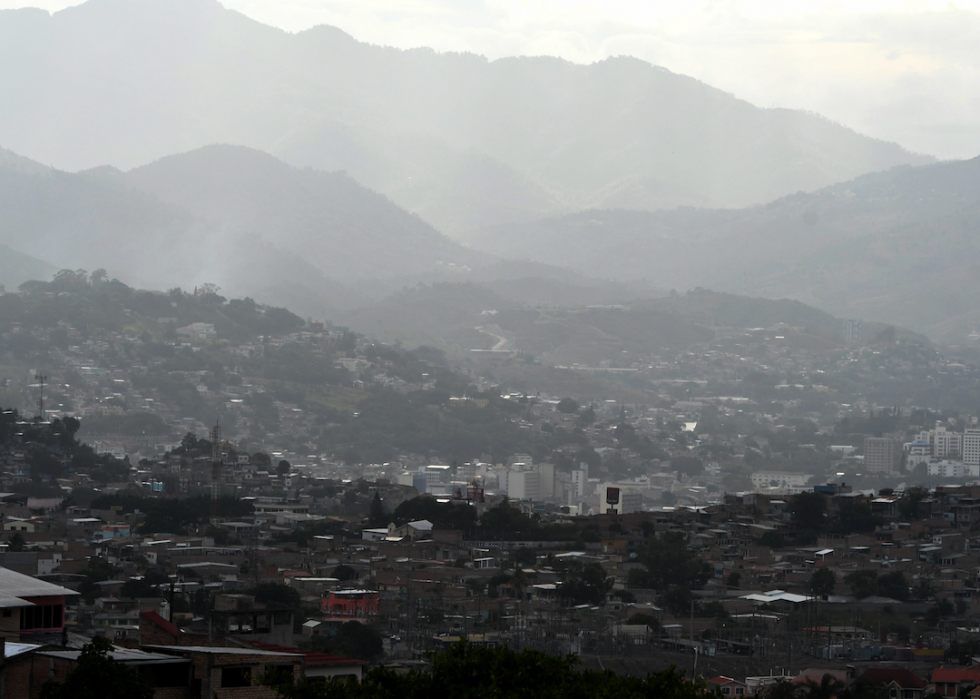
Honduras
- Advisory: Level 3: Reconsider Travel
- Date advisory updated: 6/24/2019
- Estimated homicide rate per 100,000 people: 55.5
In the Central American nation of Honduras, violent crimes such as gang activity, human trafficking, rape, and homicide are widespread, per the State Department. People traveling to Honduras should avoid using cell phones in public—even while in stopped cars—and should not wear expensive watches or jewelry.
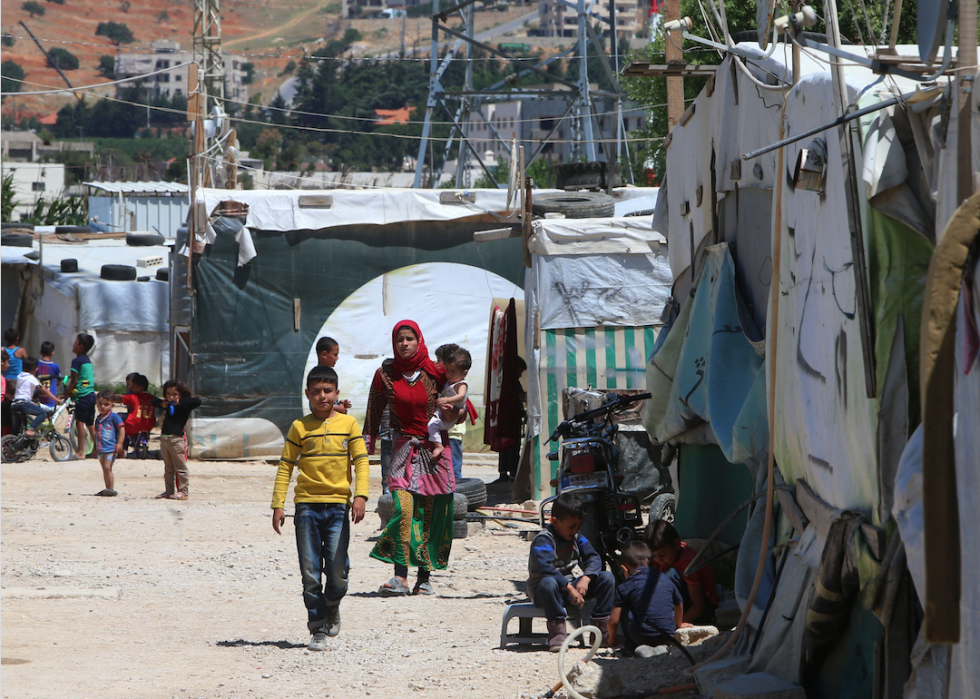
Lebanon
- Advisory: Level 3: Reconsider Travel
- Date advisory updated: 4/9/2019
- Estimated homicide rate per 100,000 people: 4.5
Terrorism threats, armed conflict, and outbreaks of violence in the Middle Eastern nation of Lebanon make it hostile to U.S. travelers. Refugee settlements, as well as the country’s borders with Israel and Syria, have a potential for armed conflict and should be avoided at all costs, according to the State Department.
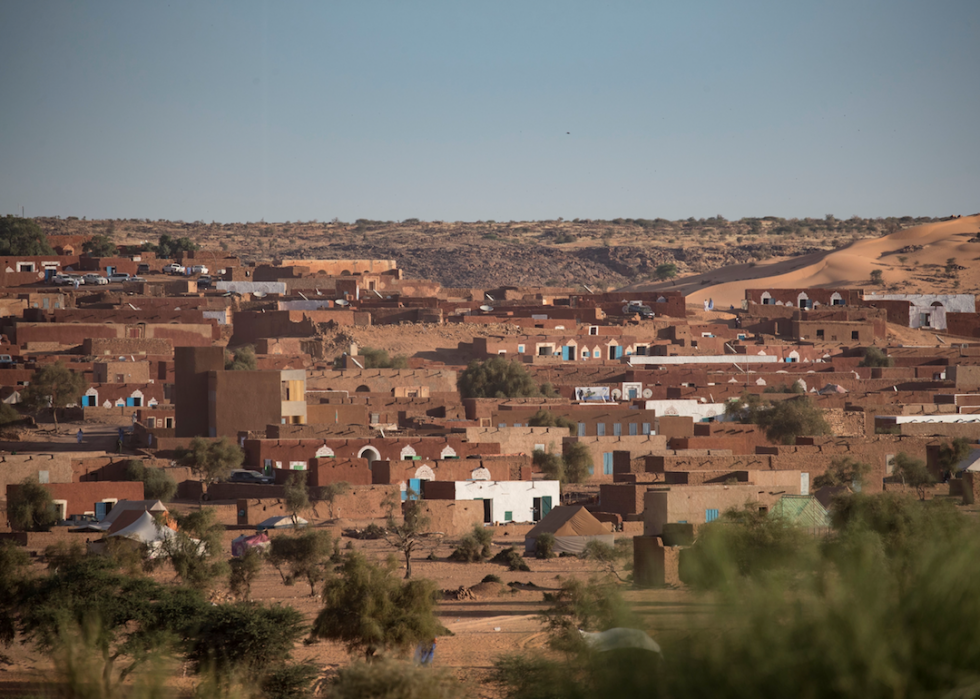
Mauritania
- Advisory: Level 3: Reconsider Travel
- Date advisory updated: 11/29/2018
- Estimated homicide rate per 100,000 people: 11
U.S. citizens should reconsider travel to the west Africa nation of Mauritania due to crime and terrorism in areas frequented by Westerners. A nation where slaves make up a reported 2% of the nation's population, poverty and extreme ideologies have made the region dangerous. Violent crimes including mugging, rape, robbery, and assault happen frequently, according to the State Department.
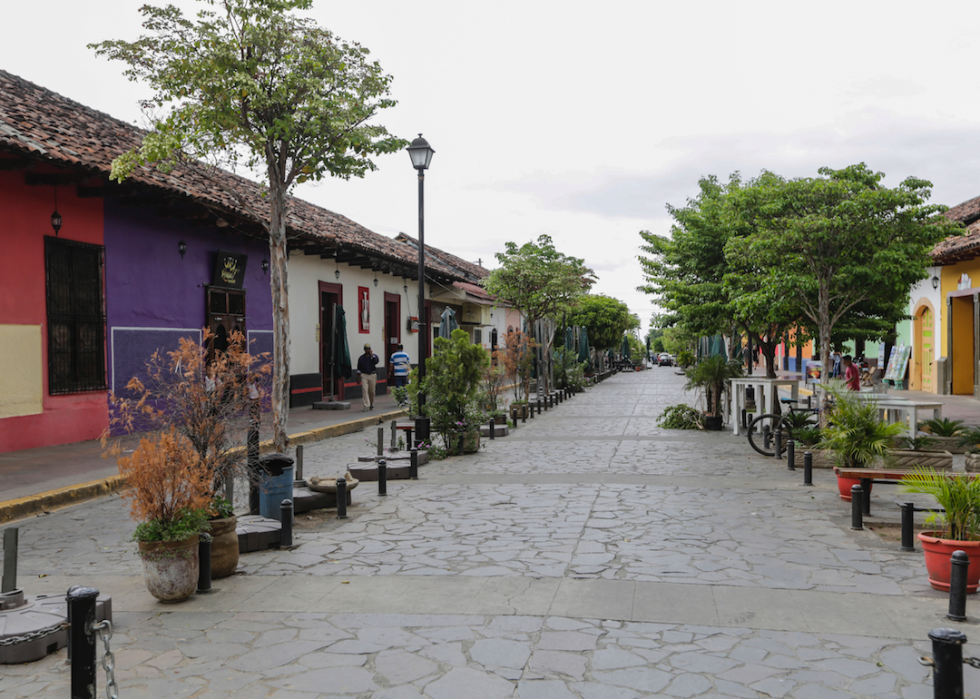
Nicaragua
- Advisory: Level 3: Reconsider Travel
- Date advisory updated: 4/3/2019
- Estimated homicide rate per 100,000 people: 13.9
Civil unrest, crime, and limited health care availability have contributed to an inhospitable travel environment in the Central American nation of Nicaragua, the State Department says. Government-controlled forces are known to attack and detain peaceful protestors—some of whom have gone missing.
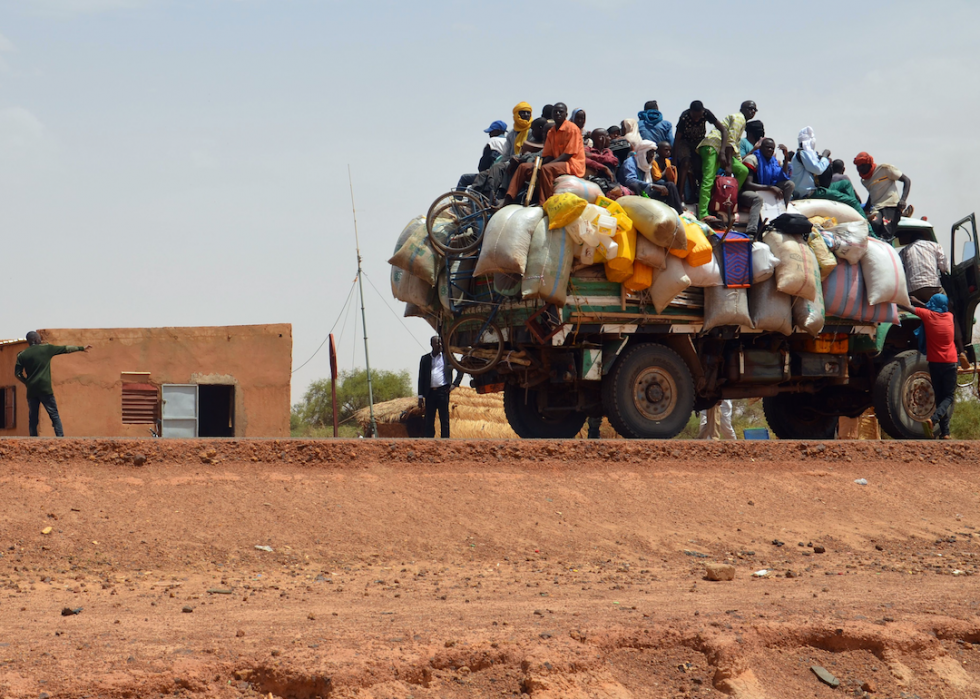
Niger
- Advisory: Level 3: Reconsider Travel
- Date advisory updated: 4/9/2019
- Estimated homicide rate per 100,000 people: 10.4
Armed robbery and violent crime is common in the west African nation of Niger, the State Department reports. People should avoid travel to the border regions due to extremist groups based in Mali crossing the border and attacking Nigerien forces.
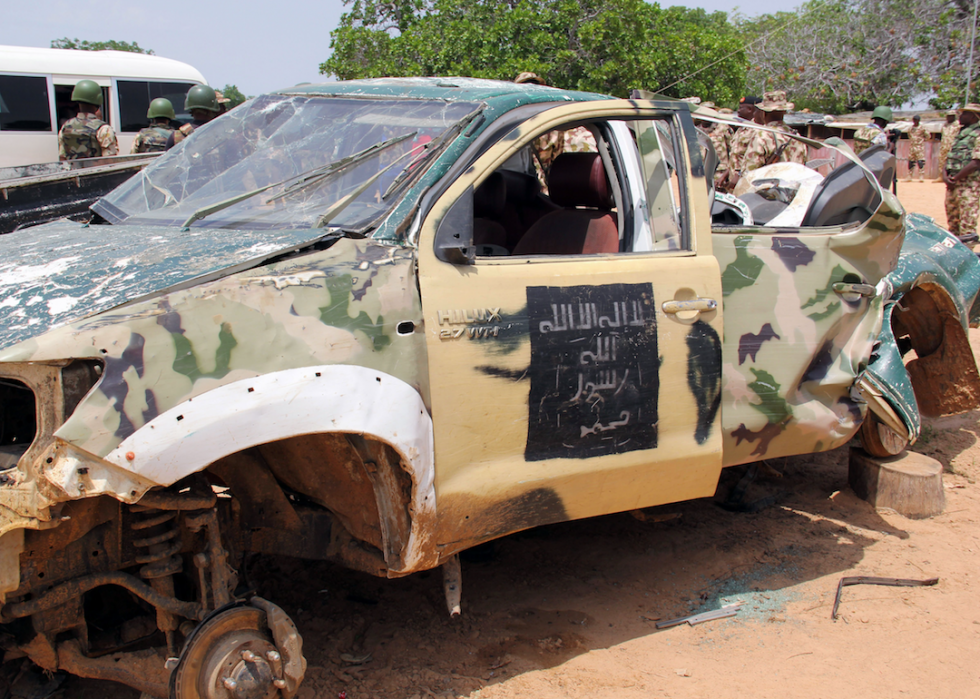
Nigeria
- Advisory: Level 3: Reconsider Travel
- Date advisory updated: 4/9/2019
- Estimated homicide rate per 100,000 people: 9.8
It is advised that Americans reconsider traveling to the west African nation of Nigeria due to crime and terrorism, in addition to piracy in the Gulf of Guinea. While Nigeria is Africa’s largest economy, the U.N. gives the nation a low human development index score—scoring low on education, health, income, and inequality. Tourists can be vulnerable to violent crime throughout the country—including armed robbery, assault, carjacking, rape, and kidnapping.
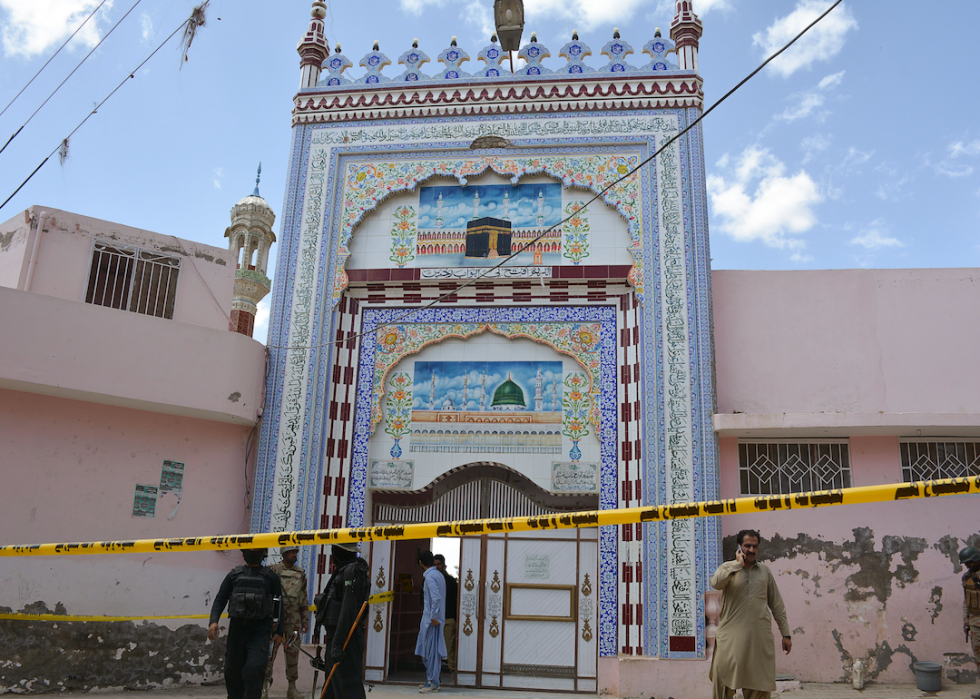
Pakistan
- Advisory: Level 3: Reconsider Travel
- Date advisory updated: 4/9/2019
- Estimated homicide rate per 100,000 people: 9.6
Terrorism continues to occur in the Middle Eastern nation of Pakistan, and tourists should particularly stay away from the Azad Kashmir area, the Balochistan province, the Khyber Pakhtunkhwa province, and the Federally Administered Tribal Areas. In the past six months, 225 people were killed and 475 were wounded as a result of terrorist attacks, according to the State Department.
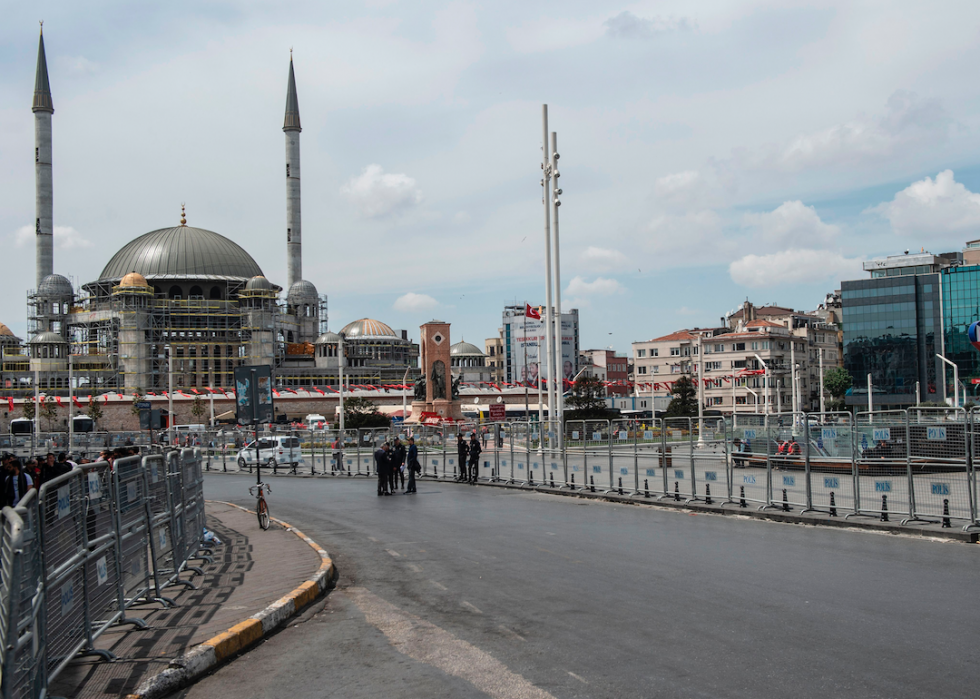
Turkey
- Advisory: Level 3: Reconsider Travel
- Date advisory updated: 4/9/2019
- Estimated homicide rate per 100,000 people: 2.7
Travelers to the Middle Eastern nation of Turkey are at risk for terrorism and arbitrary detentions, the State Department says. Under the administration of President Recep Tayyip Erdogan, the nation has taken steps to strengthen the influence of Islam, attack the free press, and undermine Kemalist or modern Turkey policies. Turkish security forces have detained tens of thousands of people, including U.S. citizens, on charges of terrorism—with little to no evidence or political motivation.
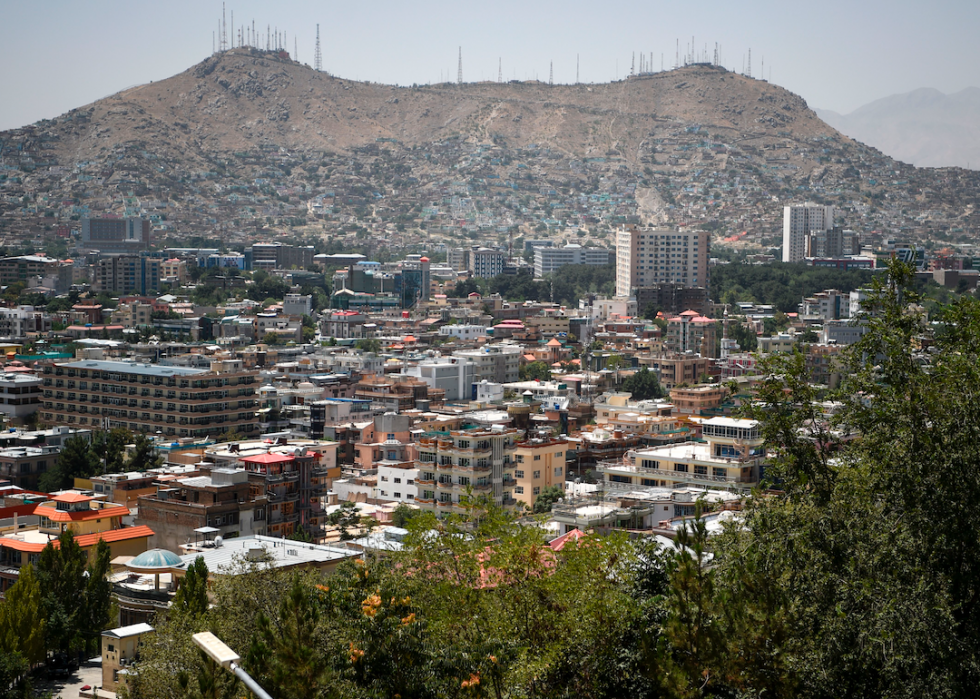
Afghanistan
- Advisory: Level 4: Do Not Travel
- Date advisory updated: 4/9/2019
- Estimated homicide rate per 100,000 people: 7.4
Travel to the southern Central Asian nation of Afghanistan is unsafe due to kidnappings, hostage-takings, suicide bombings, landmines, and terrorist attacks, according to the State Department. The continuing war with Afghanistan has made the region hostile to Westerners. Evacuation missions in the country are incredibly restricted because of Afghanistan’s lack of infrastructure, geographic limitations, and hostile security situation.
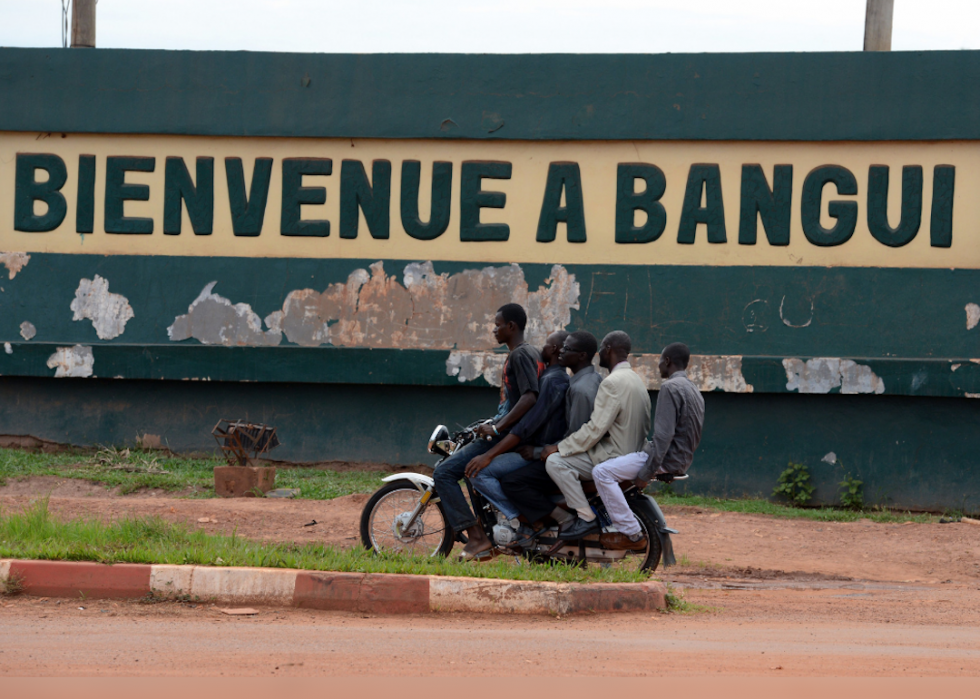
Central African Republic
- Advisory: Level 4: Do Not Travel
- Date advisory updated: 4/9/2019
- Estimated homicide rate per 100,000 people: 13.8
Areas of the Central African Republic are controlled by armed groups who are known to kidnap, injure, and kill civilians—making this an unsafe country for tourists. The nation is in the midst of a civil war that has persisted—with several interludes—since 2004.
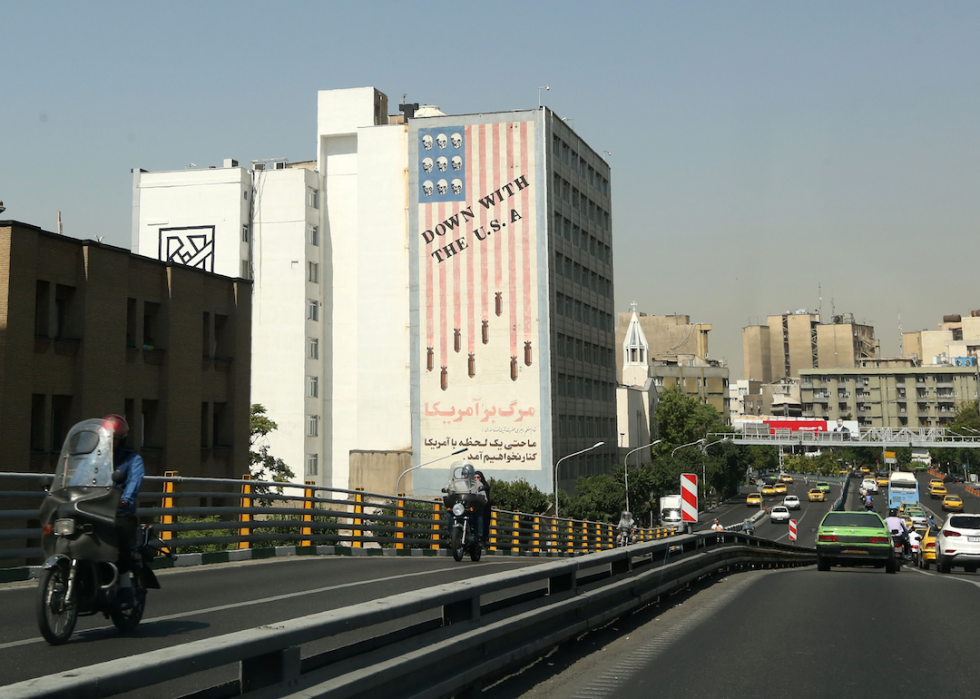
Iran
- Advisory: Level 4: Do Not Travel
- Date advisory updated: 4/9/2019
- Estimated homicide rate per 100,000 people: 4.5
American tourists in the Middle Eastern nation of Iran risk arrest and detention for arbitrary reasons—on charges including espionage and posing national security threats. The U.S. does not have diplomatic relations with Iran; Switzerland serves as the protecting power for U.S. citizens. However, Iran often denies Swiss officials access to detained American citizens. This may be due to the current state of diplomacy between the U.S. and Iran, with the U.S. abandoning the multinational Iranian nuclear agreement.
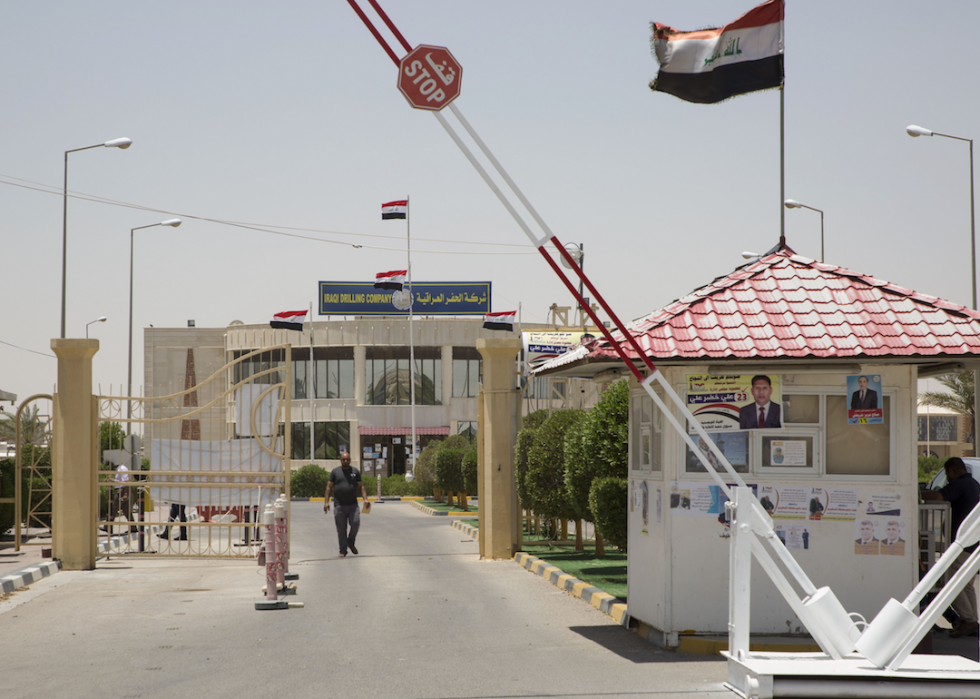
Iraq
- Advisory: Level 4: Do Not Travel
- Date advisory updated: 5/15/2019
- Estimated homicide rate per 100,000 people: 15.5
American citizens are at a high risk for violence and kidnapping in the Middle Eastern nation of Iraq, as terrorist and insurgent groups often attack civilians. Even in Baghdad, attacks from improvised explosive devices can occur, the State Department reports. A former combatant of the United States, hostilities still run hot, with strifes between the nation’s internal factions common.
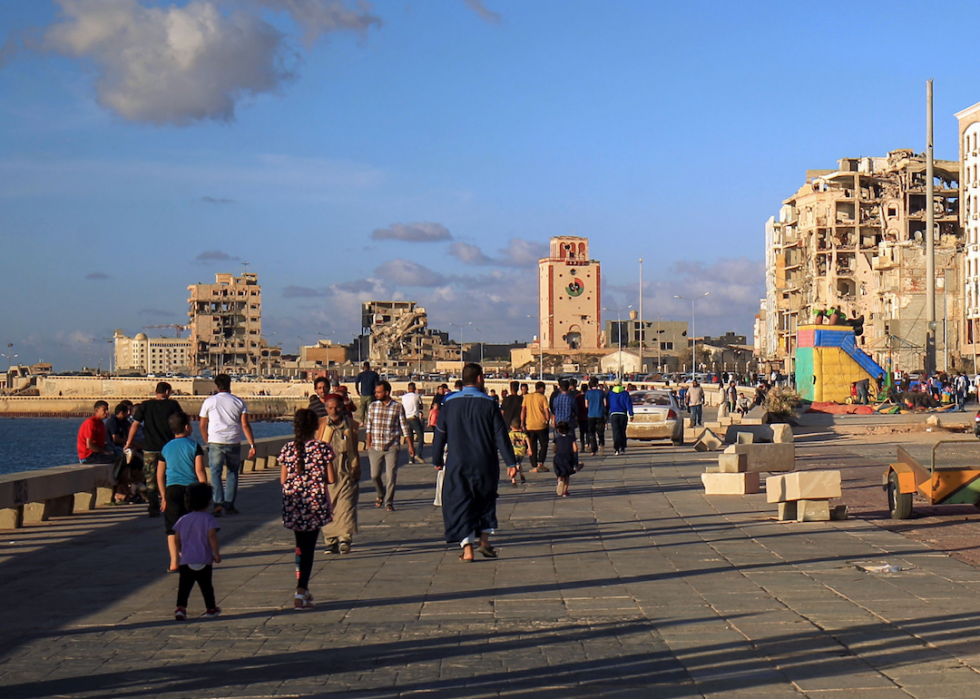
Libya
- Advisory: Level 4: Do Not Travel
- Date advisory updated: 4/9/2019
- Estimated homicide rate per 100,000 people: 2.5
Westerners and U.S. citizens are often the targets of kidnapping for ransom in the northern African nation of Libya, in addition to violent crime and terrorism. Militia groups often detain travelers for arbitrary reasons, and the country does not guarantee its detainees access to a legal process or allow them to inform others of their whereabouts.
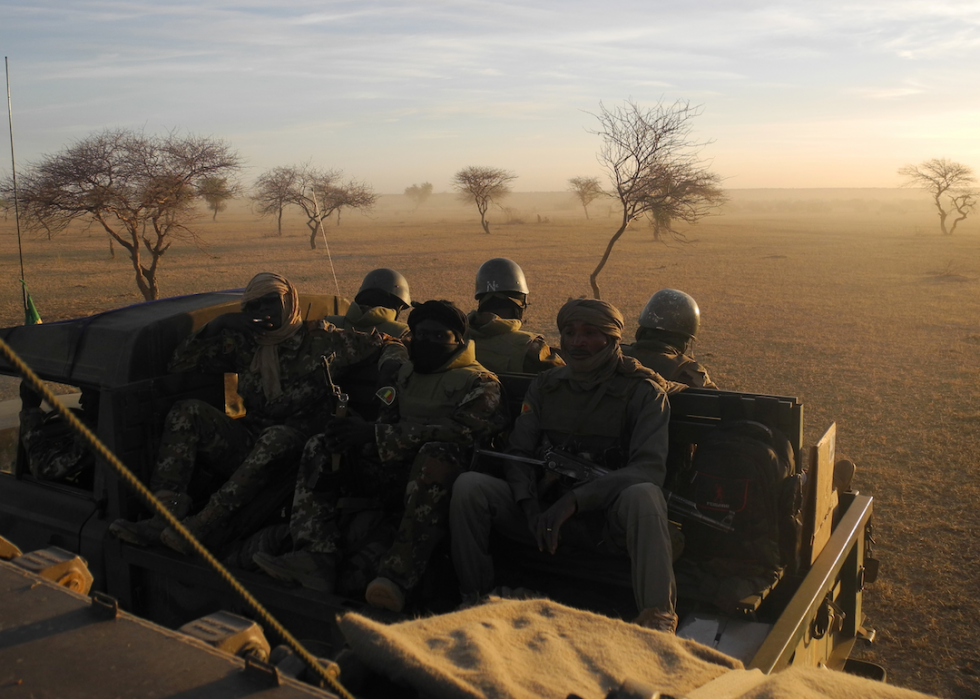
Mali
- Advisory: Level 4: Do Not Travel
- Date advisory updated: 4/9/2019
- Estimated homicide rate per 100,000 people: 11.3
Violent crime is common in the western African nation of Mali, and especially so during local holidays and seasonal events. Terrorist groups also continue to operate in the country and target places of worship, Western diplomatic missions, hotels, and restaurants, the State Department says.

North Korea (Democratic People's Republic of Korea)
- Advisory: Level 4: Do Not Travel
- Date advisory updated: 7/10/2019
- Estimated homicide rate per 100,000 people: 4.4
People cannot travel to North Korea using a U.S. passport without a special validation from the State Department, and even those are only granted in rare cases. Traveling to North Korea means risking arrest and long-term detention, and the U.S. cannot provide emergency services to citizens in the country. The Kim regime has promoted an attitude that Westerners—particularly Americans—are immoral, and have arrested American tourists on allegations of spying.
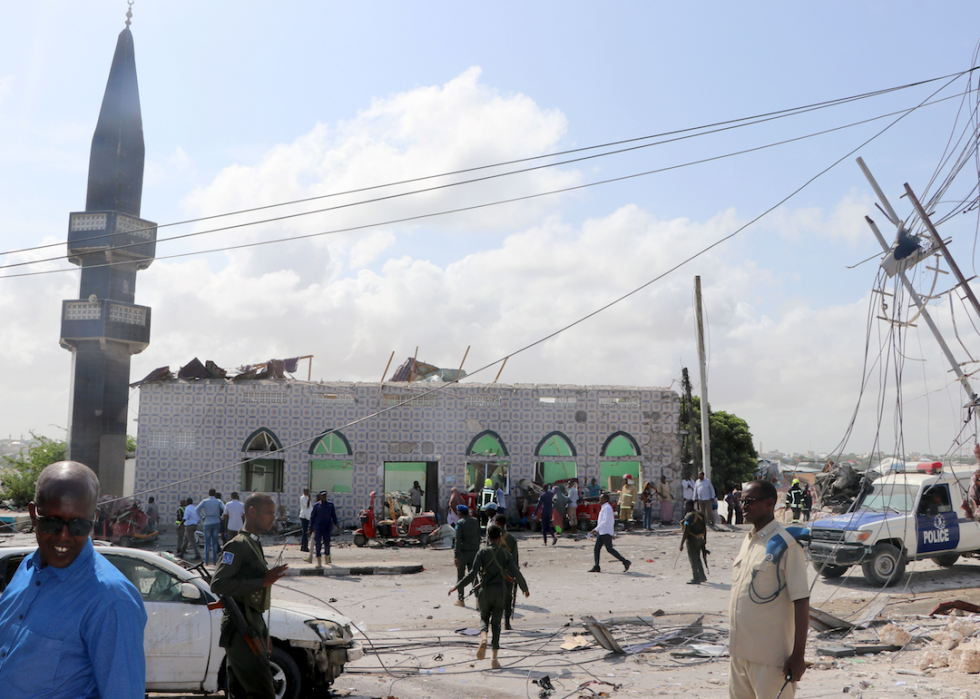
Somalia
- Advisory: Level 4: Do Not Travel
- Date advisory updated: 4/9/2019
- Estimated homicide rate per 100,000 people: 5.6
In the eastern African nation of Somalia, U.S. citizens are at risk of violent crimes including kidnapping and murder, and are vulnerable to pirates active in the waters off the Horn of Africa. Terrorists have continued to be active, some targeting Westerners and places where large crowds congregate.
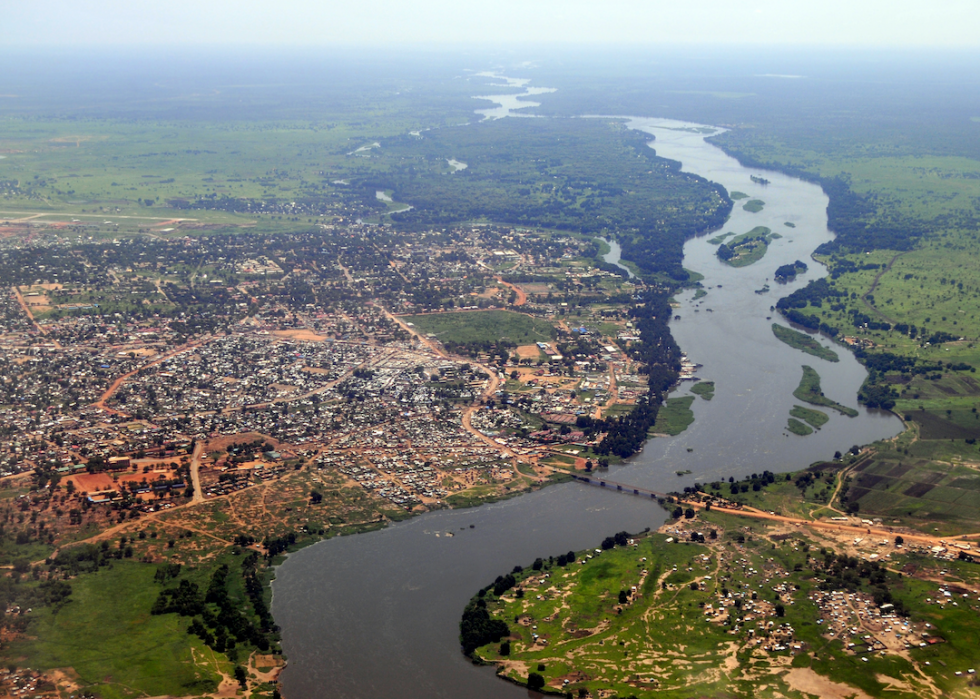
South Sudan
- Advisory: Level 4: Do Not Travel
- Date advisory updated: 4/9/2019
- Estimated homicide rate per 100,000 people: 5.1
Travel to South Sudan is extremely dangerous due to armed conflict and crime that can include shootings, ambushes, and robberies. The State Department recommends that if you choose to travel tin South Sudan, you do so with a minimum of two vehicles. The State Department also recommends creating a proof-of-life protocol—which are a set of specific questions and answers that, in the case of being taken hostage, loved ones can quickly ascertain you are in danger instead of being taken for a hoax—and avoid all photography in public, as the area is strictly controlled.
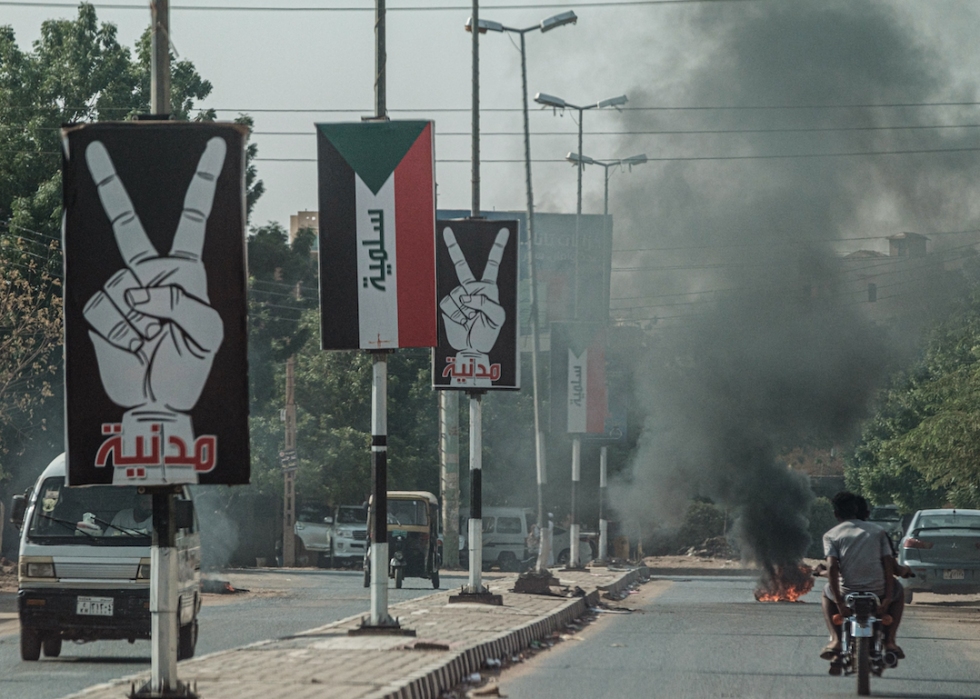
Sudan
- Advisory: Level 4: Do Not Travel
- Date advisory updated: 4/11/2019
- Estimated homicide rate per 100,000 people: 6.2
The U.S. government suggests citizens reconsider travel to the Central African nation of Sudan because of terrorism and civil unrest, and warns people not to travel to the Darfur region, Blue Nile state, and South Kordofan state because of crime and armed conflict. Terrorist groups in the country have stated their desire to harm and kill Westerners through bombings, shootings, and kidnappings, according to the State Department.
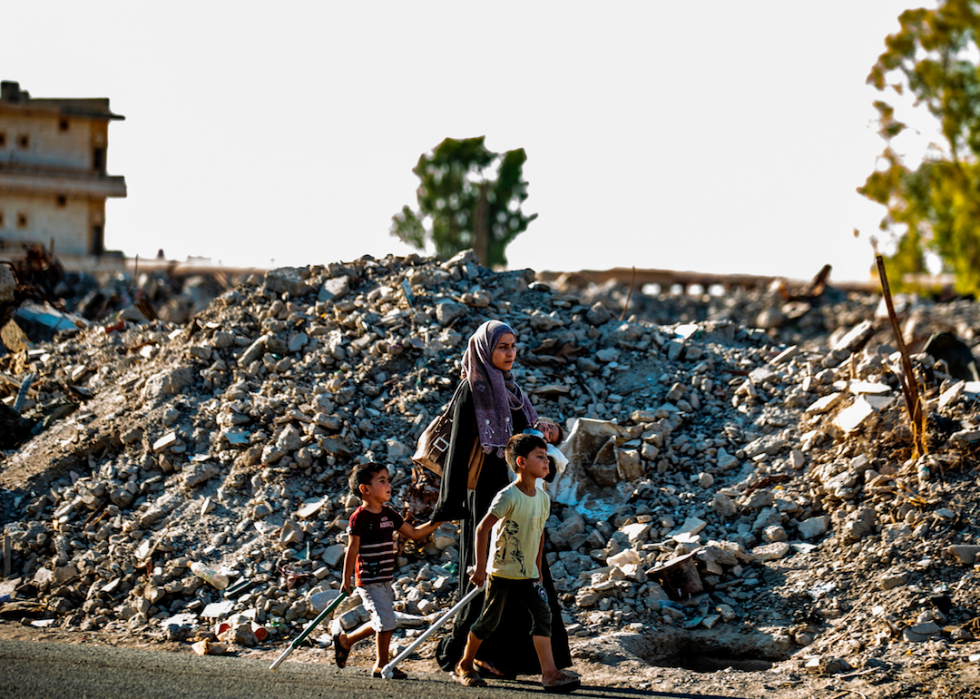
Syria
- Advisory: Level 4: Do Not Travel
- Date advisory updated: 4/9/2019
- Estimated homicide rate per 100,000 people: 2.5
U.S. citizens should not travel to the Middle Eastern nation of Syria due to the country’s widespread terrorism, armed conflict, and civil unrest. People in Syria face a significant risk of death or injury from the Bashar al-Assad administration’s use of chemical warfare, shelling, and aerial bombardment, according to the State Department, with no area of the country being safe.
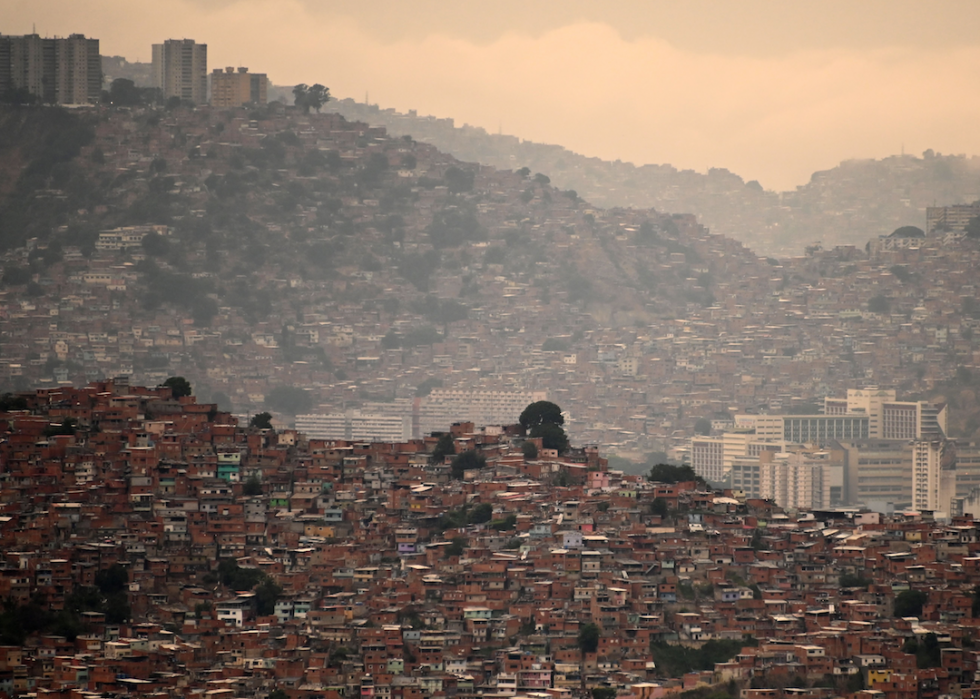
Venezuela
- Advisory: Level 4: Do Not Travel
- Date advisory updated: 4/9/2019
- Estimated homicide rate per 100,000 people: 49.2
U.S. citizens should avoid travel to the South American nation of Venezuela due to crime, civil unrest, arbitrary arrest, and shortages of food, electricity, water, and medicine. The State Department says people should not travel at all to certain neighborhoods in Caracas, roads outside of Caracas after dark, or within 50 miles of the Colombian border.
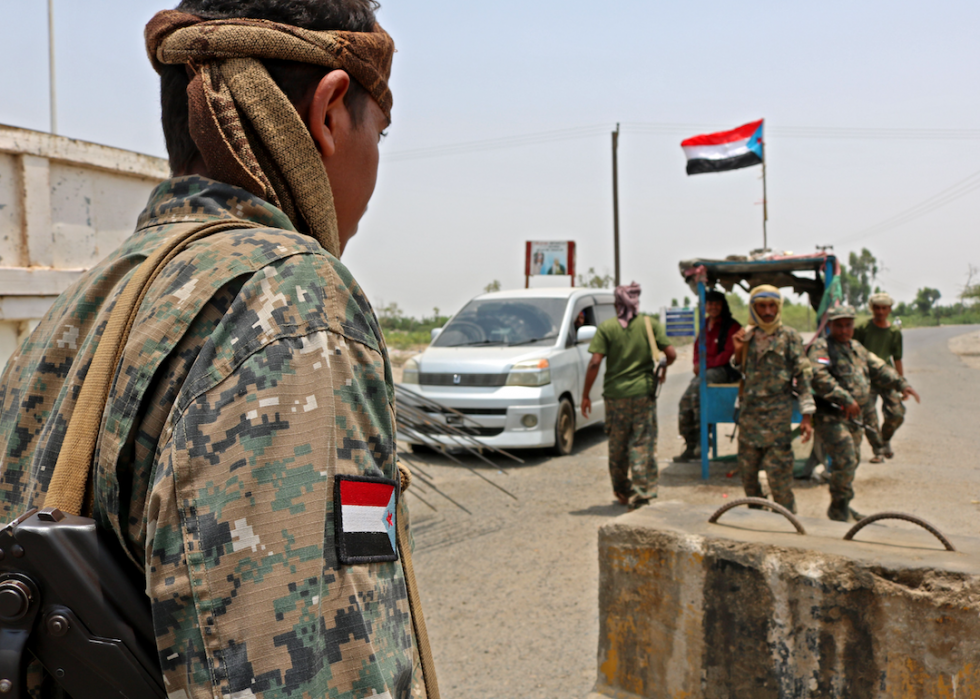
Yemen
- Advisory: Level 4: Do Not Travel
- Date advisory updated: 4/9/2019
- Estimated homicide rate per 100,000 people: 6.1
No area of the Middle Eastern nation of Yemen is safe, according to the State Department, and visitors to the country could face terrorism, civil unrest, and armed conflict. The military conflict with Saudi Arabia and the United Arab Emirates has caused a deterioration of infrastructure within the country, leading to limited electricity, medical care, and drinking water. Yemen was also home to the world’s largest cholera outbreak, and the U.S. government has a limited ability to provide emergency services.



